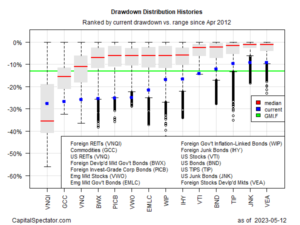: Take MarketWatch’s 2022 Financial Literacy Quiz. Will you get 10/10?
Doh!
You don’t know what you don’t know until you get an incorrect answer in a financial literacy quiz. It stings. But there’s no harm in that. We should all learn something new every day, especially when it comes to managing our finances. It helps us to plan for the future, gives us peace of mind and brings more understanding to the complex world of stocks and, hopefully, retirement.
April is National Financial Literacy Month and, to mark the event for MarketWatch readers, we put together a simple — although that’s obviously relative — quiz for our readers. We’ve tried to stick to some of the main areas of interest — namely, interest rates, taxes, stocks, savings and credit reports. There are 10 questions — with one bonus question thrown in for good luck.
If you get 10/10 and know the answer to the bonus question, buy yourself an ice-cream or an apple. If you didn’t answer all the questions correctly, buy yourself an ice-cream or an apple anyway. Our aim is to raise awareness for Financial Literacy Month. We, at MarketWatch, aim to democratize and demystify financial news, and make this sometimes intimidating subject as accessible as possible. Ditto, this quiz.
Take it alone, with a family member or friend, and if you enjoyed it, pass it on.
–Quentin Fottrell
MarketWatch’s 2022 Financial Literacy Quiz
Question 1: Congratulations, you just won the lottery! Here’s better news: That money is tax-free. (a) True or (b) false?
Question 2: If you invested $1,000 with an APY of 0.50% compounding daily, and contributed $100 per month for 10 years, would you end up with approximately (a) $12,500, (b) $13,000 or (c) $13,350?
Question 3: Most people choose not to take the standard deduction instead of itemized deductions on their federal income taxes because they like to have more context and nuance to their federal tax returns to increase their chance of a refund. (a) True or (b) false?
Question 4: For the purposes of your federal income taxes, the Internal Revenue Service regards your cryptocurrency as (a) property (b) currency (c) like a stock.
Question 5: Checking your own credit score will lower it. (a) True or (b) false?
Question 6: When the U.S. Federal Reserve hikes interest rates, what happens to the price of gold in the immediate aftermath? (a) The price will fall due to uncertainty related to consumer spending, borrowing and stock prices (b) The price will rise due to uncertainty related to consumer spending, borrowing and stock prices or (c) the price of gold may rise or fall or even hold steady.
Question 7: It’s safer to buy or sell stocks after hours because there are fewer traders. (a) True or (b) false?
Question 8: If you have a credit card with a $10,000 available credit, you should (a) use $5,000 to $8,000 of that available credit and pay it off every month to improve your credit score and rack up rewards points, (b) use $3,000 or less of the available credit and pay it off every month to improve your credit score and don’t focus too much on rewards points or (c) use the entire $10,000 and pay it off every month, and maximize all the rewards points you can.
Question 9: When you retire you should sell your stocks and invest in bonds to keep the money safe from stock-market volatility. (a) True or (b) false?
Question 10: If you take out a 15-year mortgage in lieu of a 30-year mortgage, you will be required to pay (a) a higher interest rate and higher monthly payments, (b) a lower interest rate and higher monthly payments or (c) a lower interest rate and lower monthly payments.
Bonus Question: Your credit-card company says your interest rate has increased from 18% to 20%. That means your rate has gone up by 2%. (a) True or (b) false?

How did you score in MarketWatch’s Financial Literacy Quiz? Find out (below).
Getty Images/iStockphoto
And here are the answers:
Answer 1: False: “Gambling winnings” — which include lottery awards, wins at the casino, horse track, or sports betting — are “fully taxable, the IRS says.
Answer 2: (b) More than $13,350.
Answer 3: (a) False: People took the standard deduction on 88.5% of individual returns during 2018, according to IRS statistics. This allows people to avoid keeping receipts and expenses in the event they are audited, among other reasons. “It’s much simpler to claim the standard deduction than to itemize, but it could cost you money,” TurboTax says. “You might consider itemizing if you made substantial charitable donations, if you paid mortgage interest and property taxes on your home, or if you had large amounts of out-of-pocket medical expenses, or uninsured losses from a theft or casualty, such as a fire or natural disaster.”
Answer 4: (a) The IRS treats cryptocurrency as “property” for federal income-tax purposes. In other words, you should recognize and report taxable gain or loss whenever you exchange cryptocurrency for U.S. dollars, Euros, goods or services, real estate, a new car, or even if you switch from Bitcoin
BTCUSD,
to Ethereum
ETHE,
Just ask MarketWatch’s Tax Guy.
Answer 5: (b) False. While almost four in 10 respondents to this recent survey said they believed checking their credit score can hurt it, that is not the case — in fact, it’s a good idea to keep tabs on it. When a financial institution checks your credit score, that’s seen as a hard inquiry, and can result in a temporary ding to your credit score. When you check your credit score, that’s a soft inquiry. You can get your credit score by checking your credit card or other loan statement, using a credit-score service, enlisting help from a nonprofit credit counselor, or purchasing a score straight from the credit-reporting companies.
Answer 6: (c) The price of gold may rise or fall, or hold steady. Since the Fed increased interest rates on March 18, the price of gold has been choppy. Interest rates can certainly be an important driver of asset prices, but their effect can depend on other variables, including expectations of a rate hike and inflation, among other reasons.
Answer 7: (b) False. The volume of trading is a fraction of what it is during official trading hours, and for that reason stock-price movements can be more volatile and stock prices can be seriously warped. Those big price moves can be an opportunity and they can also come with a big risk for those trading out of hours on apps like Robinhood
HOOD,
You may also be up against full-time, experienced traders.
Answer 8: (c) Use up $3,000 or less of your available $10,000 credit every month. FICO Score
FICO,
and VantageScore typically recommend keeping your total credit-utilization ratio below 30%. “Generally, a low credit-utilization ratio is considered an indicator that you’re doing a good job of managing your credit responsibilities because you’re far from overspending,” according to Experian. “A higher rate, however, could be a flag to potential lenders or creditors that you’re having trouble managing your finances.”
Answer 9: (b) False. People are living longer lives and will need their money to last longer. For this reason, retirees should have stocks, also called equities, among their investments. Typically, stocks are a good way to grow your investments while also staying ahead of inflation. However, stocks come with risk, so it’s important to balance stocks with bonds and some cash. Read more about low-cost funds for retirees and the bucket strategy for creating a simple retirement income plan.
Answer 10: You will be required to pay (b) a lower interest rate and higher monthly payments due to the lower risk over the 15-year period, and the faster repayment schedule due to the shorter loan term.
Answer to the Bonus Question: (b) False. If your interest rate went from 18% to 20%, it has increased by 2 basis points, or 11%.
Contributions from Quentin Fottrell, Andrew Keshner and Angela Moore.
Published at Thu, 31 Mar 2022 21:22:00 -0700




